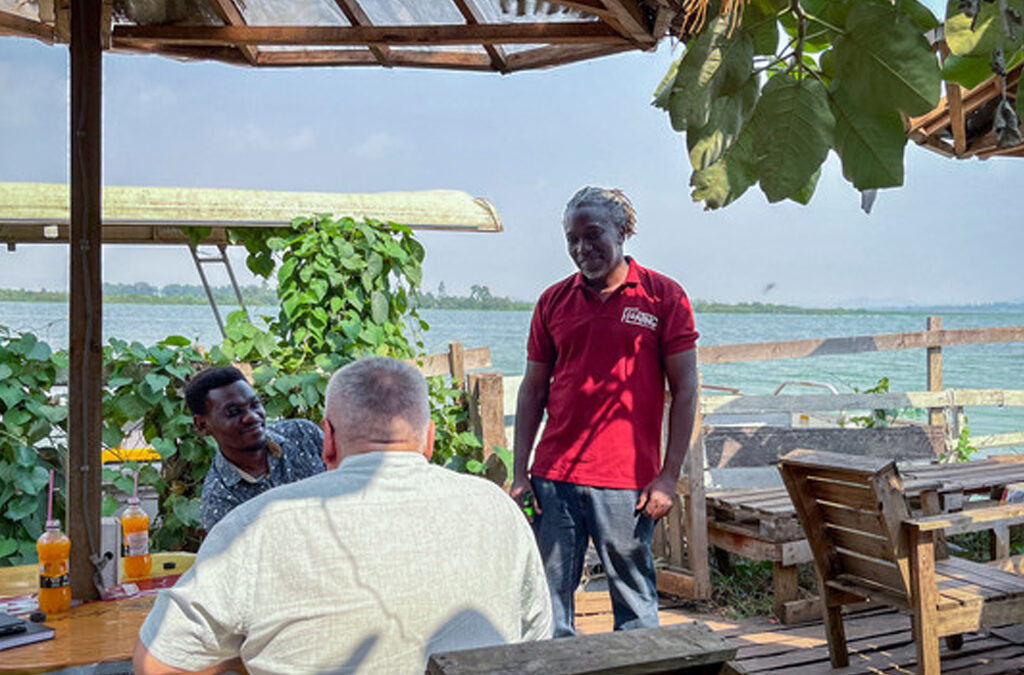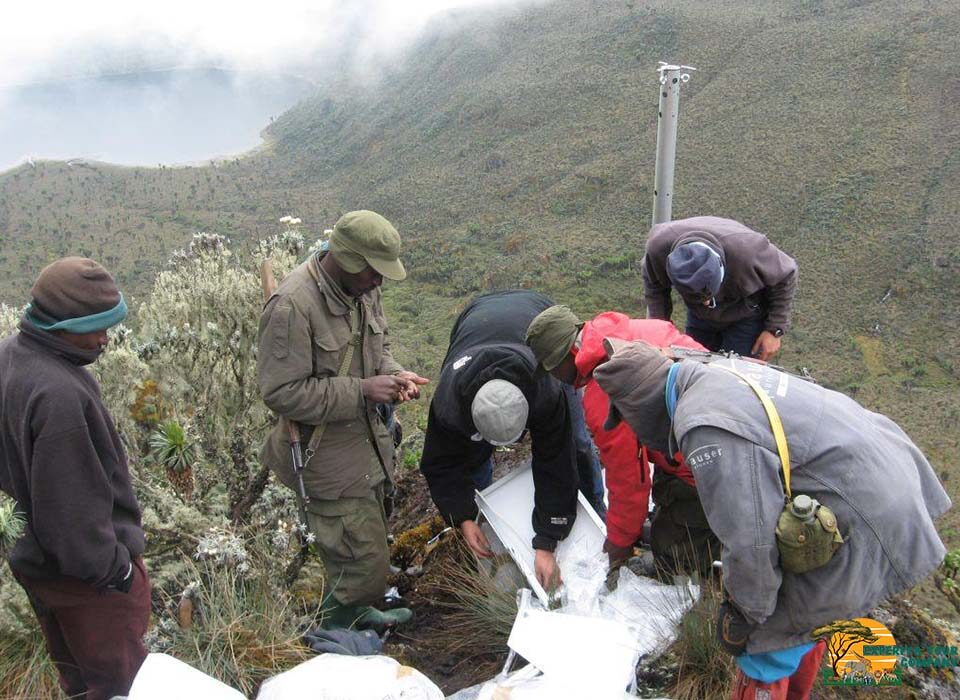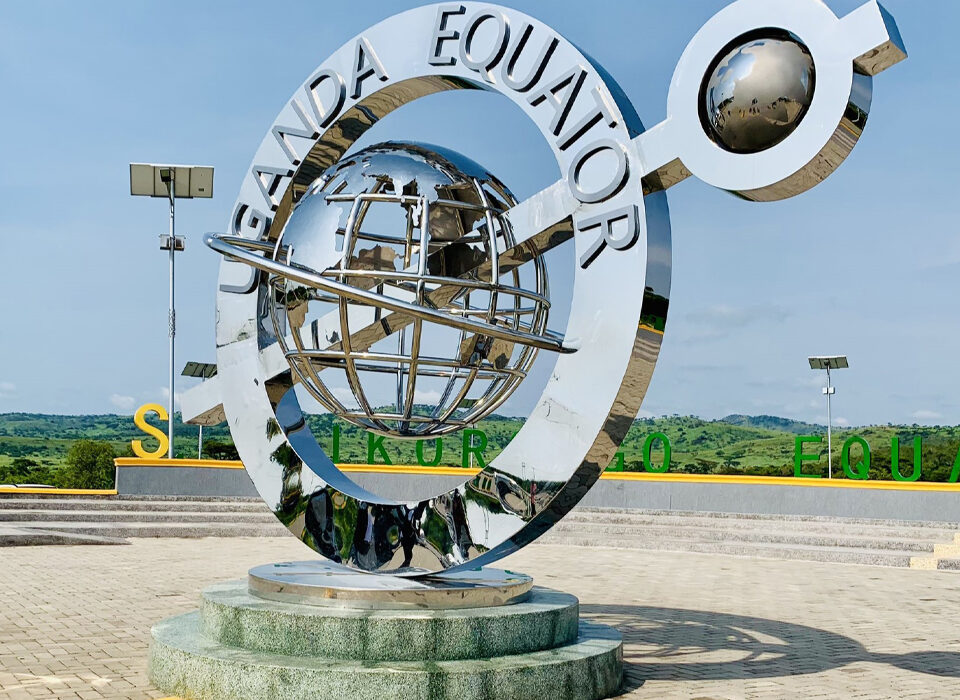
Where to Find the Silverback Gorillas in Uganda
October 1, 2025
1-Day Uganda Gorilla Trekking Tour from Kigali
October 1, 2025The Floating Restaurant in Luzira, Uganda

A Unique Sight on Lake Victoria
A floating restaurant and bar rests gracefully on the waters of Lake Victoria, near Luzira in Kampala. From the air, the sight is mesmerizing—flowering plants rise from a wooden boat, creating a leafy, enchanting atmosphere. At first glance, visitors marvel at its beauty, but the story behind this floating haven is even more compelling.
An Innovative Recycling Project
The greenery that decorates the boat does not simply sprout from soil. Instead, it grows from an innovative recycling project that uses thousands of dirt-encrusted plastic bottles as the foundation. These bottles anchor the boat and provide fertile ground for climbing tropical plants.
The creator, James Kateeba, began building the vessel in 2017 after witnessing the heavy pollution that floods Lake Victoria during rainy seasons. Plastic bottles and other waste often float near beaches, threatening both the lake’s ecosystem and the fishing communities that depend on it. Kateeba saw an opportunity to transform this challenge into a sustainable solution.
Turning Waste Into Beauty
To gather materials, he enlisted fishermen from nearby landing sites, paying them a small fee to collect discarded bottles. Within six months, he had received more than ten tons. He tied them into fishing nets, coated them with dirt, and created sturdy floating bases. These structures became the fertile ground for vibrant plants, including morning glory vines that now drape across the boat.
Kateeba insists his creation is not only a business but also a conservation effort—his contribution to protecting one of Africa’s greatest lakes from degradation. Lake Victoria, the world’s second-largest freshwater lake, is vital to millions of people across three countries, yet it suffers from pollution, sand mining, and declining water levels driven by climate change.
A Place to Relax and Enjoy
Today, the floating restaurant—often called the Floating Island—can host up to 100 visitors at a time. Guests enjoy meals, music, and even short drifting rides when the boat is unmoored. On one afternoon, a group of teenagers danced for TikTok videos while a carpenter built a new wooden sun deck. The lively yet tranquil atmosphere attracts both locals and international visitors.
One tourist described the place as unlike anything he had seen before, praising the idea as “very unique” because it combines environmental protection with hospitality.
Inspiration for the Region
This project is not the only example of turning plastic waste into opportunity. In Kenya, a similar effort created the Flipflopi, a small boat built entirely from recycled plastic. In 2021, it sailed across Lake Victoria to raise awareness about pollution in the region’s most critical freshwater ecosystem.
A Vision for the Future
Kateeba’s floating restaurant shows how creativity and determination can turn waste into wonder. What began as a response to pollution has become a thriving business, a conservation model, and a unique attraction on Lake Victoria. For visitors, it offers not only food and relaxation but also inspiration—a reminder that innovation can help protect the environment while bringing people together.


